9 Substitutions for Vegetable Oil in Baking
Making substitutions for vegetable oil in baking can be pretty simple because there are so many options out there! Whether you just ran out of your usual or you are changing your dietary choices for the better, these nine oil swap options have their own place and time for use. See which ones might work for you.
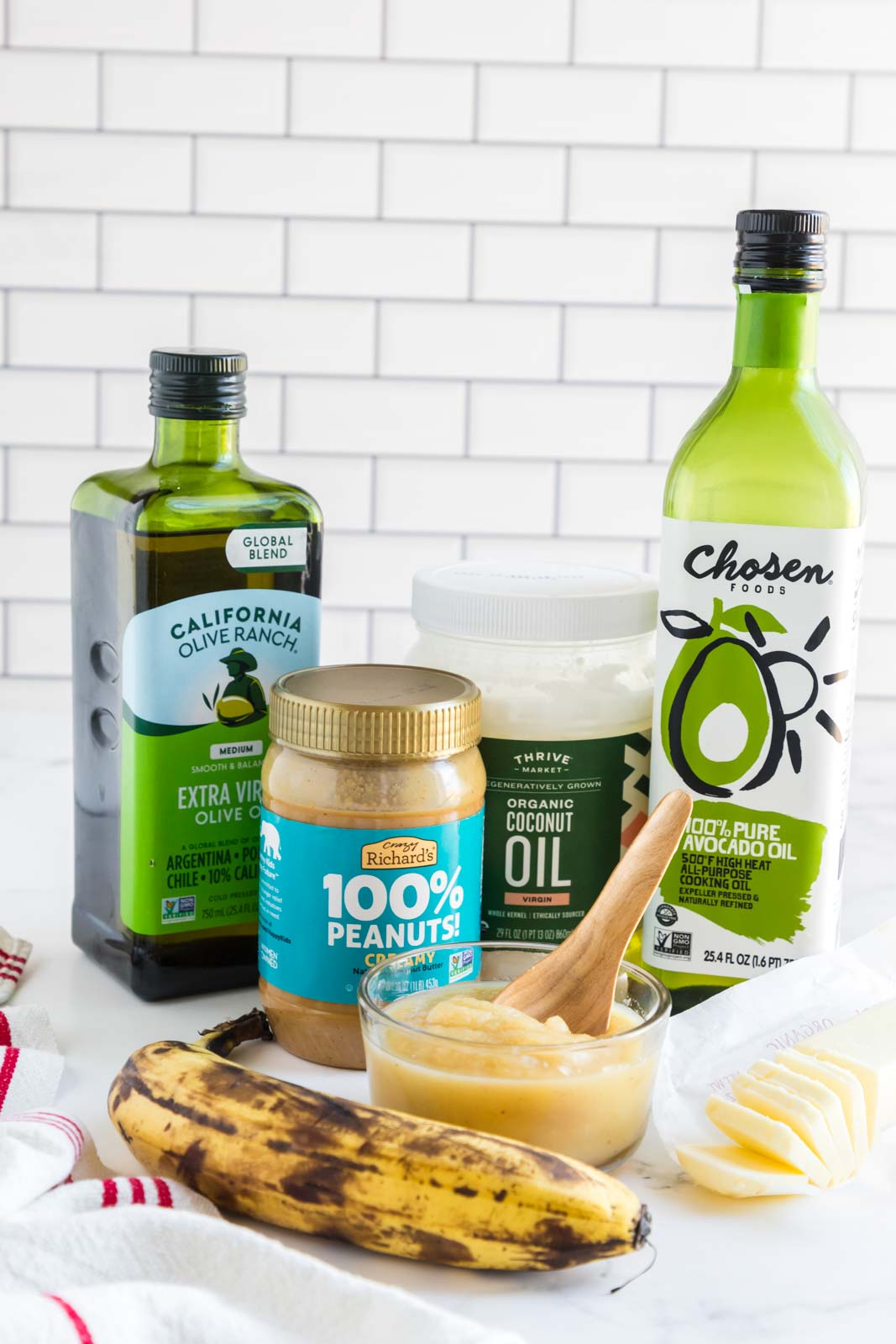
It’s the worst when you spend time and costly ingredients on a baking project only to discover you ran out of oil–shoot.
Or maybe you are like my family and decided vegetable oil was no longer an ingredient you wanted to have in your body and now you’re switching to other options.
What can you use instead?
While no one option is perfect, there are a lot of choices out there depending on your needs and what you’re baking. Obviously banana would be a poor choice in a savory bread recipe and butter won’t work if you’re dairy free, but fear not–there’s something here for everyone.
Facts about vegetable oil you need to know first
Vegetable oil is convenient and inexpensive and works well in baking. But at what cost? Consider these facts before you buy another plastic bottle of the stuff:
- Loaded with PUFA (polyunsaturated fats): In moderation, PUFAs can help lower bad cholesterol but in excess, they promote inflammation, obesity, and insulin resistance.
- Omega ratio: Vegetable oils have a relatively high omega 6 to omega 3 ratio which can increase your risk of cardiovascular disease, cancer and generalized inflammation.
- We eat way too much of it: Although it’s not terrible for you in moderation, we as a society consume way too much vegetable oil because it’s in absolutely everything. From fast food to spices, it’s pervasive.
- Processing chemicals: Hexane, a chemical used to extract all the oil from the rape seed, is carcinogenic when heated. Although much of it is removed during the refining process, trace amounts remain.
- Other chemicals: Vegetable oil is often heated and reheated to pump out things like French fries. As the oil meets and surpasses its smoke point over and over again, it releases acrolein, a toxic chemical found in cigarettes. One order of large fries has enough acrolein to equal that of smoking 27 cigarettes. Gross.
Real butter
Butter is a wonderful alternative to vegetable oil in baking. Here’s a quick rundown of this flavorful fat.
- Flavor: Butter brings a lovely richness to whatever baked good it is used in.
- It dries out faster though: Butter does not keep baked goods as moist as other fats do. You might find yourself with dry muffins or cake after a few days.
- Low smoke point. This fat has a low smoke point, making it a poor choice for high-temperature cooking so don’t use it for high heat frying or roasting. It will be fine in a muffin or quick bread though.
- How to substitute: You can substitute butter for vegetable oil at a 1:1 ratio.
Need to fry something? Try this.
Donuts, funnel cakes and other baked goods that need a deep fry can be made in refined coconut oil. Refined has no flavor and is more affordable than other oils, like avocado. You may find refined in your grocery but it’s more likely that you’ll need to order it.
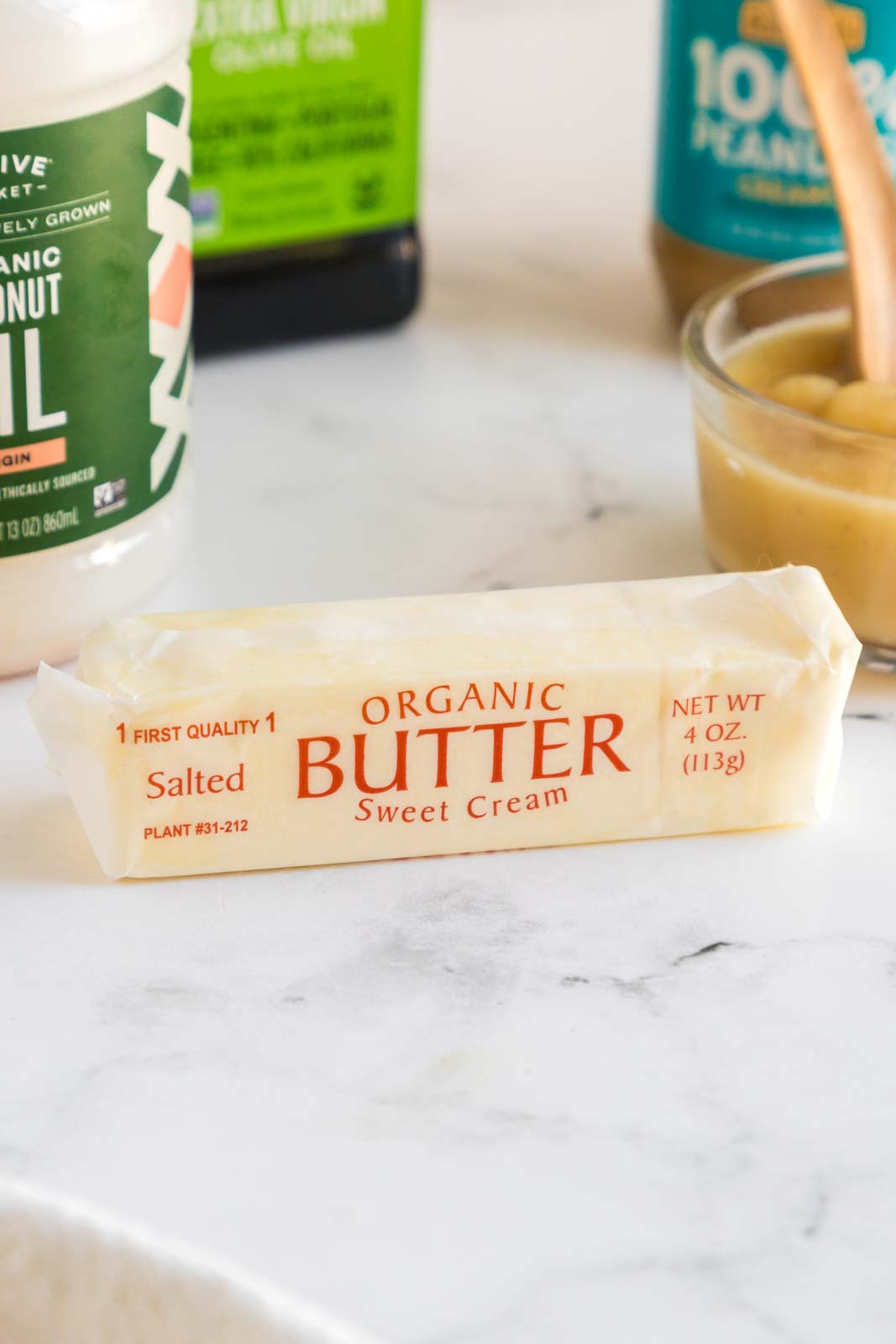
Avocado oil
I have become increasingly fond of using avocado oil in baking over the years. Let me tell you why.
- Heart health: Avocado oil is a great source of monounsaturated and polyunsaturated fats, which can help lower bad cholesterol and promote heart health.
- Flavorless: Because avocado oil is flavorless, you can use it in pretty much anything regardless of it being sweet or savory.
- High smoke point: It takes a lot to push this oil past its smoke point. This makes it suitable for pretty much any cooking method, regardless of temperature.
- Expensive: Avocado oil is pretty expensive and baking typically requires relatively large amounts. For this reason it’s not my first choice, but it does produce really great baked goods.
- How to substitute: You can substitute avocado oil for vegetable oil at a 1:1 ratio.
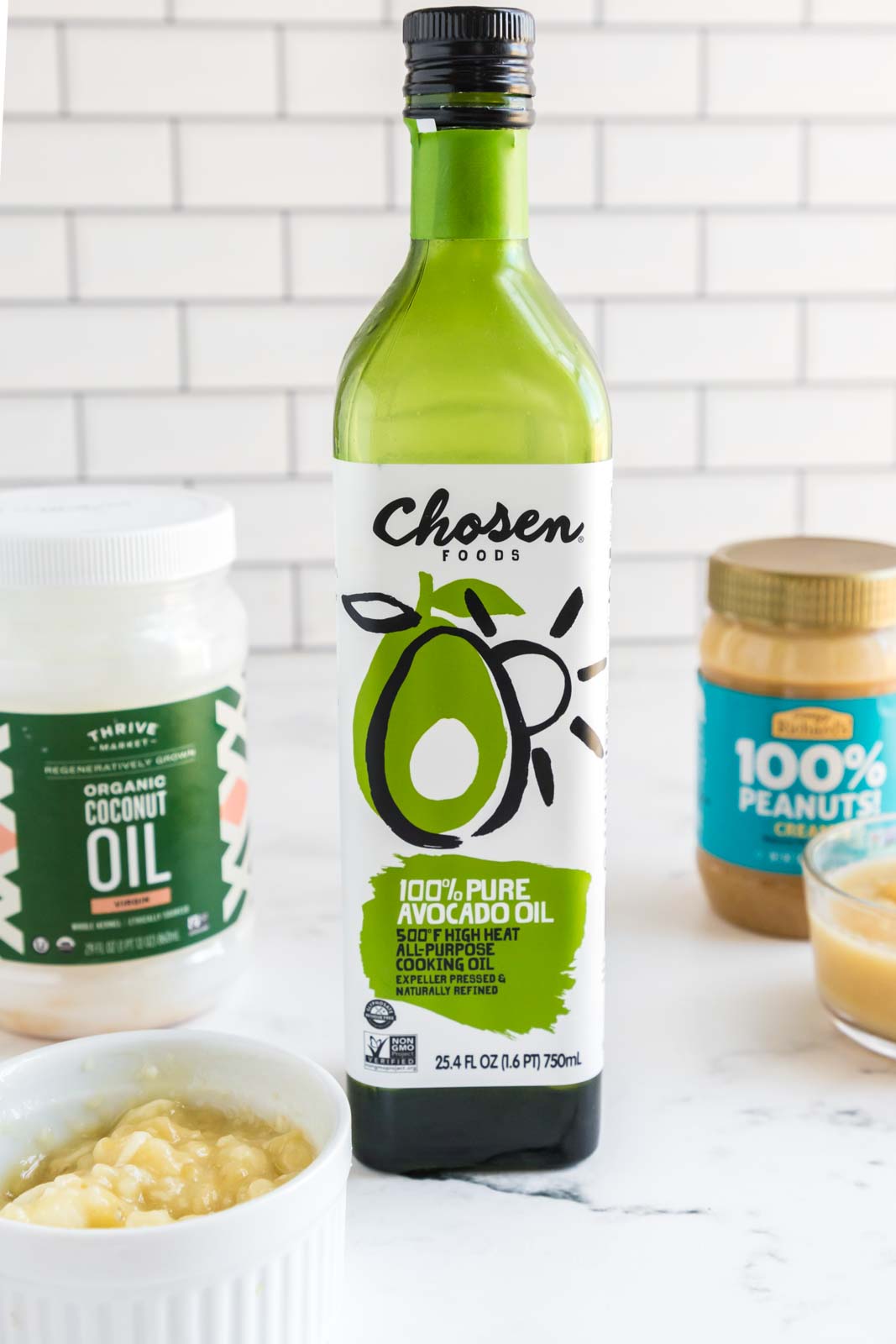
Applesauce
Applesauce is not a fat but it is often used in baking in place of vegetable oil to add moisture. Let’s take a quick look at it.
- Low fat: Applesauce adds nice moisture to baked goods without the fat and calories found in butter and oils.
- Flavor: It brings a lovely, subtle sweetness to baked goods that I really enjoy.
- Moisture: The water content in applesauce provides much sought-after moisture to baked goods but can also cause the finished product to become tough due to the overdevelopment of glutens. Make sure not to over mix the dough once it’s added.
- How to substitute: You can use 1 cup of applesauce to replace 1 cup of oil.
Coconut oil
I love using coconut oil in baking. Here’s what you’ll want to think about before choosing it as a replacement for vegetable oil.
- Unique flavor: Unrefined coconut oil has a unique, sweet flavor to it. I love the extra pizazz it brings to sweet baked goods but you can also choose a refined version for no flavor. Refined is my first choice for baking.
- Versatile: Refined coconut oil has no flavor and a relatively high smoke point so you can use it in all sorts of cooking.
- How to substitute: Use a 1:1 ratio when substituting coconut oil for vegetable oil. You’ll just want to melt it before measuring and make sure it cools slightly before adding it to your recipe.
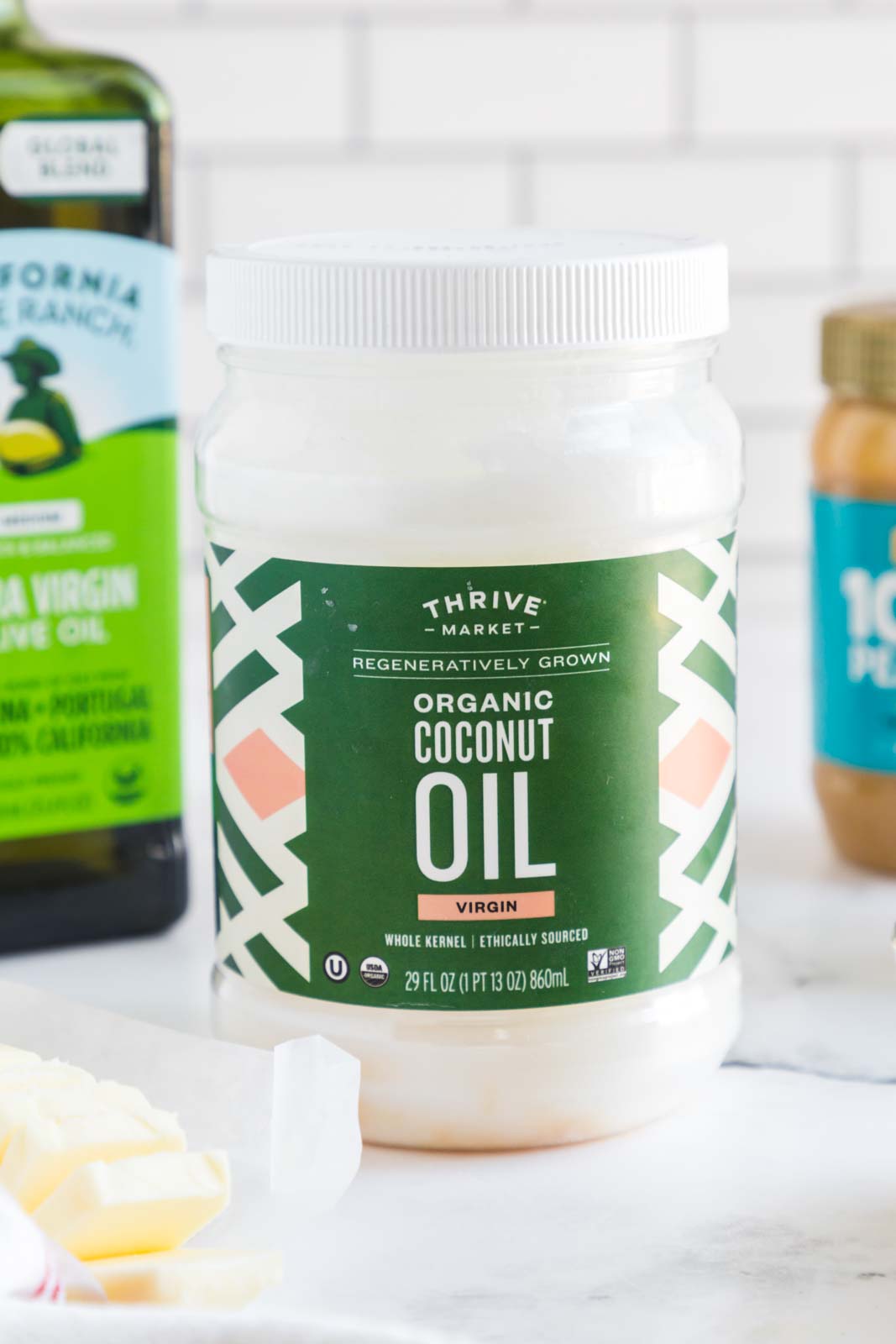
Olive oil
Olive oil is an incredible friend in the kitchen. It’s most often used in savory cooking but it can be a delight in baking as well.
- Health benefits. Extra virgin olive oil is loaded with antioxidant and anti-inflammatory properties which can be helpful in maintaining overall health and preventing disease.
- Flavor: Note that olive oil contributes a unique flavor that can take people by surprise outside of the savory realm. If a recipe calls for a lot of oil (1/2 cup or so) you may want to choose another oil to prevent overpowering your recipe with its flavor.
- Smoke point: Olive oil has a relatively low smoke point when compared to vegetable oil. This means that it is best to use it in recipes that do not require a ton of heat. It’s usually fine in baked goods, but you wouldn’t want to deep fry in it.
- How to substitute: You can use a 1:1 ratio when substituting olive oil for vegetable oil.
Ghee (clarified butter)
Ghee has been rising in popularity for years. I use it more in savory cooking, but you can use it to bake as well.
- Great for those of you avoiding dairy: One of the primary causes of reactivity to dairy is the casein found in most dairy products. Ghee is casein-free!
- High smoke point: Ghee has a very high smoke point (especially when compared to butter), which makes it ideal for cooking with heat.
- Flavor: It has a wonderfully rich, nutty flavor. Yum.
- Health benefits: Ghee’s high concentration of omega 3s makes it good for cardiovascular and heart health as well as hair, skin, and nail health. Ghee also has a positive impact on gut health and immunity.
- How to substitute: Use a 1:1 ratio when substituting ghee for oil.
Nut butters (almond, peanut, cashew)
Nut butter is an awesome, healthy fat to use in baking. Here are my thoughts on it.
- Flavorful: Nut butters contribute a lot in terms of flavor when used in baked goods. Each has a unique flavor, though, so make sure you are willing to commit to it before folding it into your batter.
- Nutrition: They are loaded with protein as well as heart-healthy fats, fiber, antioxidants, and essential vitamins and minerals.
- So many options: Almond butter, peanut butter, cashew butter, oh my! So many choices. Cashew butter is a great choice in baking because of its relatively neutral flavor. Use one that’s just nuts and salt if possible.
- How to substitute: You’ll want to use a 1:1 ratio when substituting nut butter for vegetable oil in baking. If your dough or batter is still a bit dry, add a splash or two of milk.
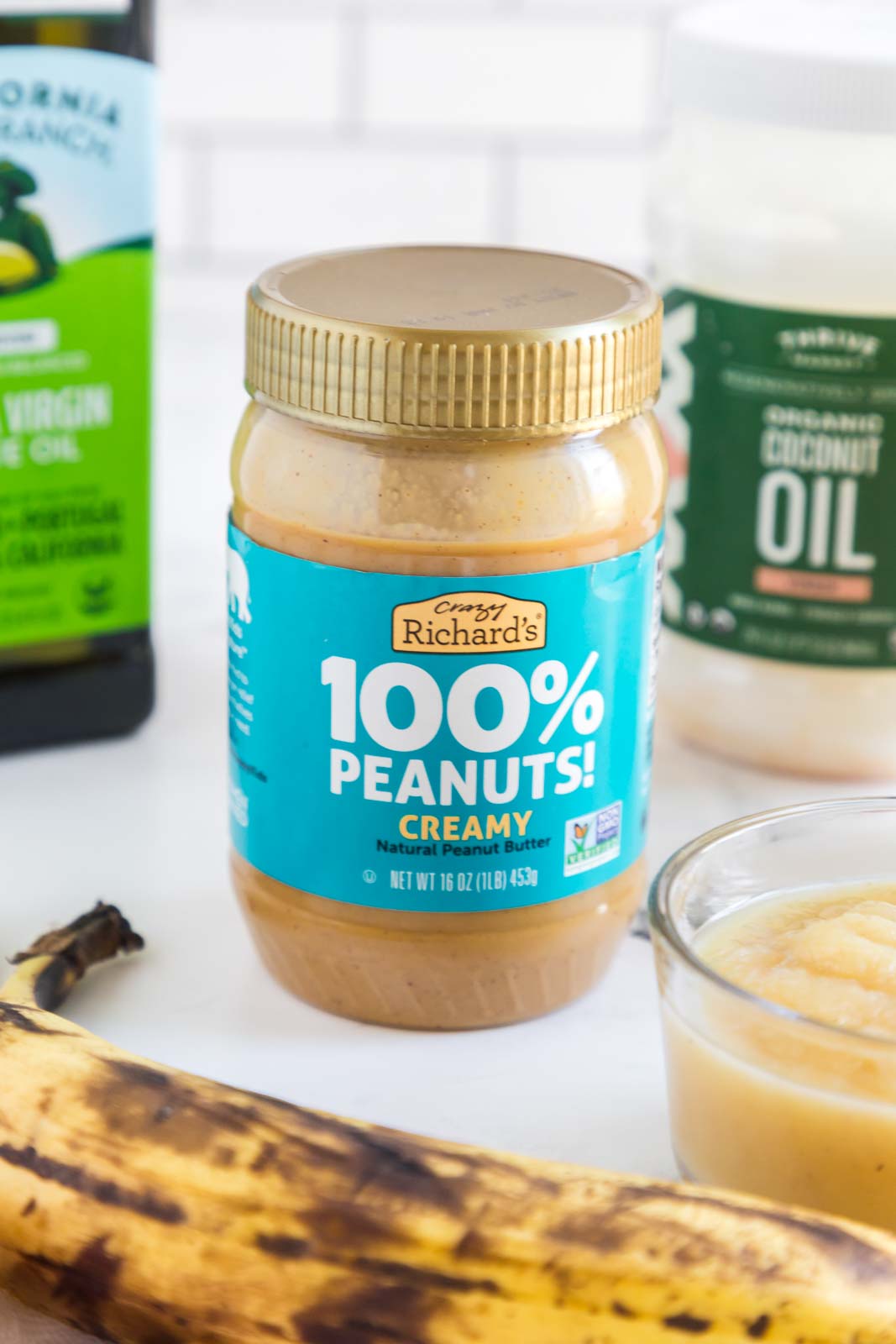
Greek yogurt
Greek yogurt is a delicious, nutritious addition to many baking recipes. While it can’t be used quite in the same way as oil, it’s still an important one to add to this list. Here’s why.
- Moisture: Adding Greek yogurt to a baking recipe makes it extra moist and tender.
- Flavor: Greek yogurt brings a tanginess to your baked goods. Some people love it. Some don’t.
- Nutrition: Greek yogurt contains a hearty dose of protein, calcium, and vitamin B-12.
- Rise: The acidity of Greek yogurt helps to activate any baking soda in your recipe, which allows for a better rise.
- How to substitute: You can use Greek yogurt as a 1:1 substitute for vegetable oil in most baking recipes. Just note that it will add a lot of tang to the finished product, especially in recipes that require a lot of oil.
Mashed bananas
Bananas are a great low-fat substitution for oil in baking. Here’s what you need to know.
- Natural sweetness: Using ripe, mashed bananas in your baking will immediately up the sweetness of your yummy treat. Without added sugar or fat!
- Flavor: While banana has a nice flavor, it doesn’t go with everything. Bananas should only be used if they complement the other flavors in the recipe.
- Binding: Not only do mashed bananas provide moisture to baking goods but they also work to bind ingredients together (similarly to eggs).
- How to substitute: Use a 1:1 ratio when substituting mashed bananas for oil. Note that you may need to use extra leavening agent as bananas tend to weigh baked goods down.
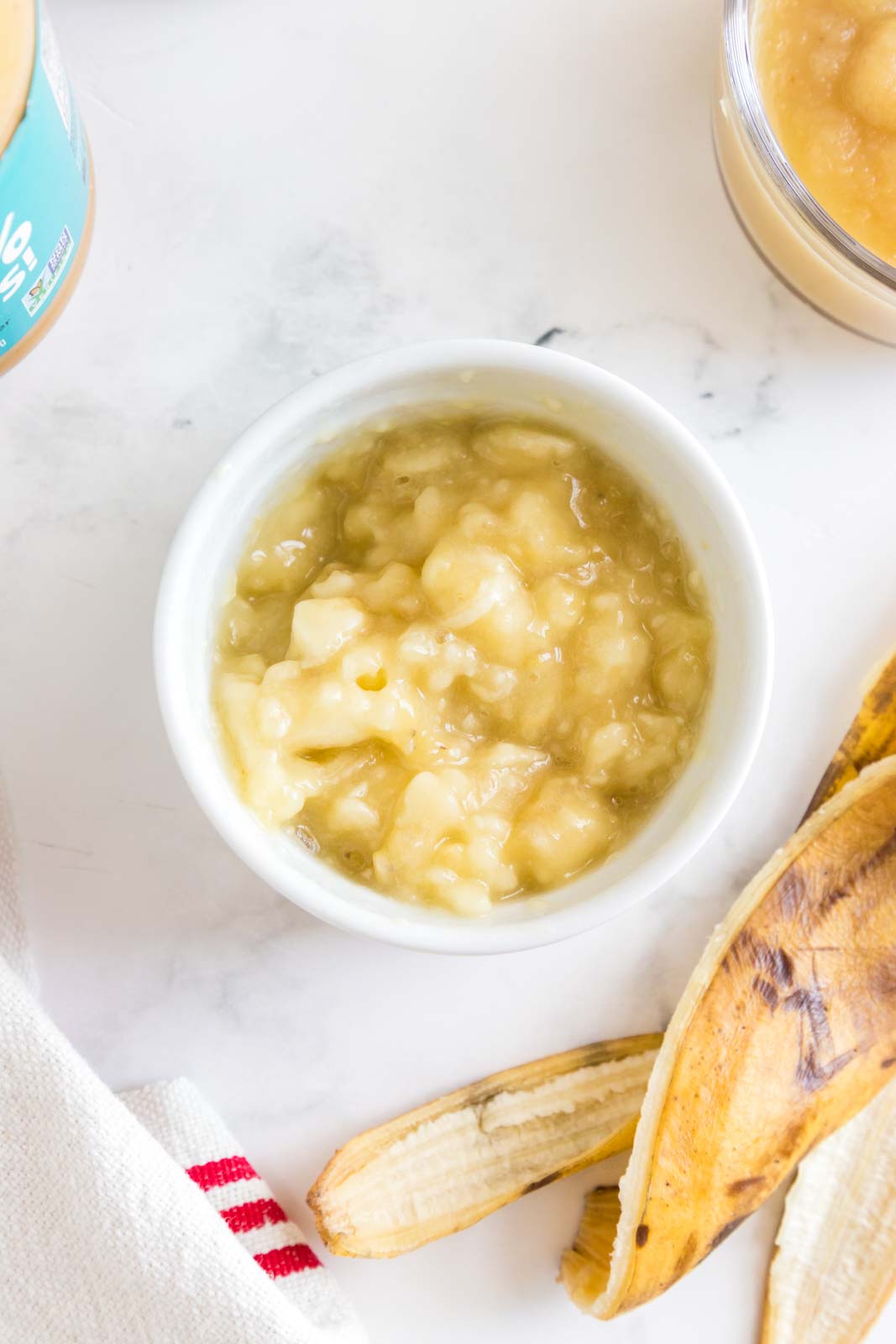



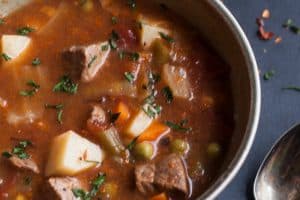

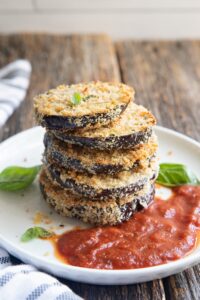
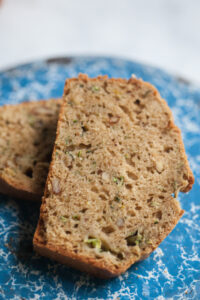
About the Author
Rachel Ballard, RN, BSN brings more than 20 years of professional nursing expertise to Feast and Farm. With a love for nutrient dense foods that support wellness, she works to distill complex health information and current trends into recipes that fuel the best version of yourself. Read more about Rachel here.